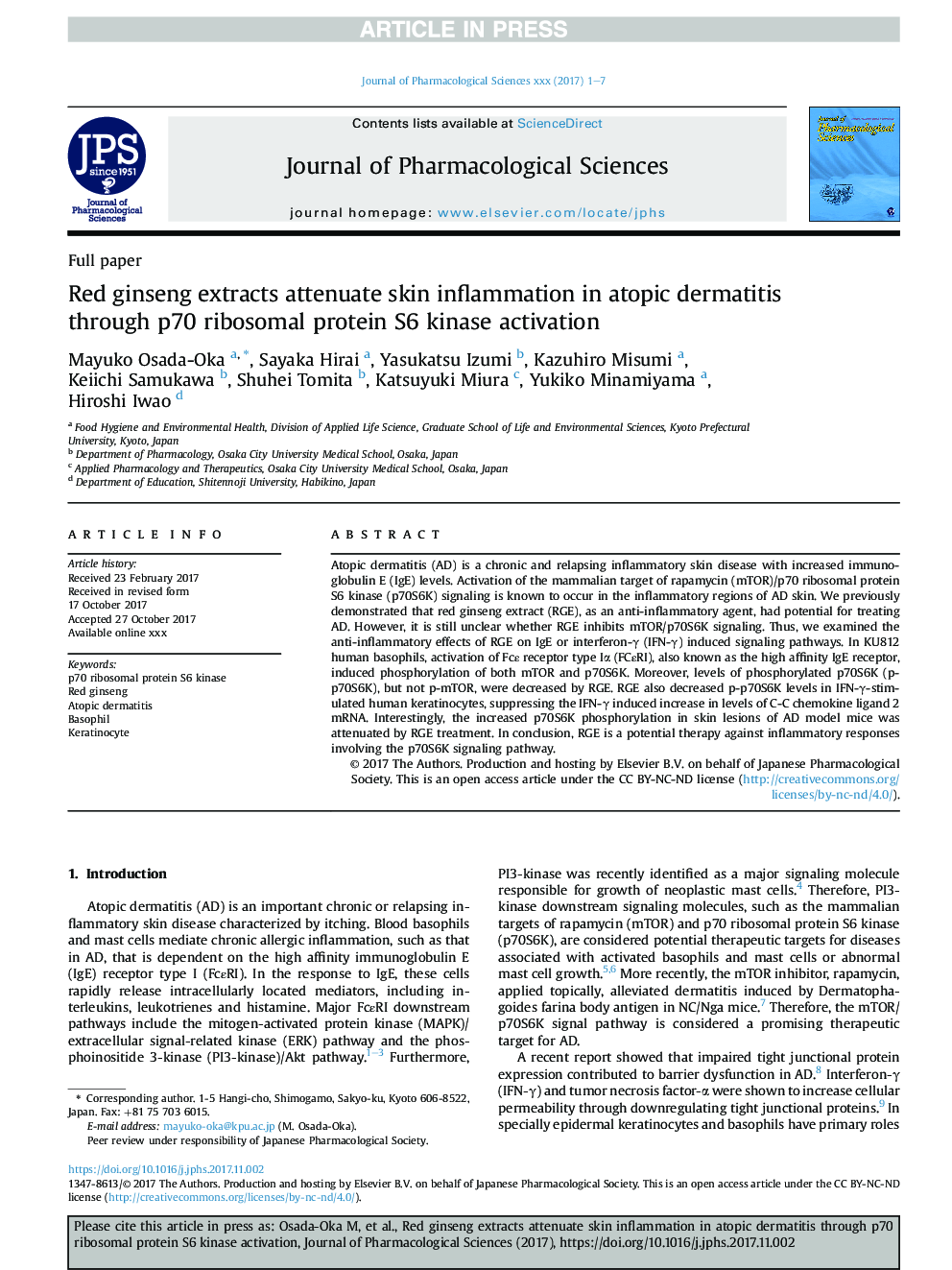| Article ID | Journal | Published Year | Pages | File Type |
|---|---|---|---|---|
| 8532941 | Journal of Pharmacological Sciences | 2018 | 7 Pages |
Abstract
Atopic dermatitis (AD) is a chronic and relapsing inflammatory skin disease with increased immunoglobulin E (IgE) levels. Activation of the mammalian target of rapamycin (mTOR)/p70 ribosomal protein S6 kinase (p70S6K) signaling is known to occur in the inflammatory regions of AD skin. We previously demonstrated that red ginseng extract (RGE), as an anti-inflammatory agent, had potential for treating AD. However, it is still unclear whether RGE inhibits mTOR/p70S6K signaling. Thus, we examined the anti-inflammatory effects of RGE on IgE or interferon-γ (IFN-γ) induced signaling pathways. In KU812 human basophils, activation of Fcε receptor type Iα (FCεRI), also known as the high affinity IgE receptor, induced phosphorylation of both mTOR and p70S6K. Moreover, levels of phosphorylated p70S6K (p-p70S6K), but not p-mTOR, were decreased by RGE. RGE also decreased p-p70S6K levels in IFN-γ-stimulated human keratinocytes, suppressing the IFN-γ induced increase in levels of C-C chemokine ligand 2 mRNA. Interestingly, the increased p70S6K phosphorylation in skin lesions of AD model mice was attenuated by RGE treatment. In conclusion, RGE is a potential therapy against inflammatory responses involving the p70S6K signaling pathway.
Related Topics
Health Sciences
Pharmacology, Toxicology and Pharmaceutical Science
Pharmacology
Authors
Mayuko Osada-Oka, Sayaka Hirai, Yasukatsu Izumi, Kazuhiro Misumi, Keiichi Samukawa, Shuhei Tomita, Katsuyuki Miura, Yukiko Minamiyama, Hiroshi Iwao,
